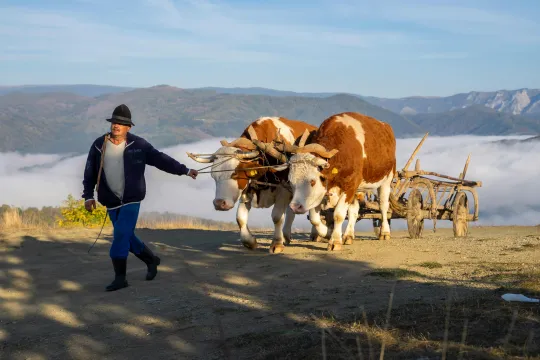Active banners: 0 Visible banners: 0
Farmer Revolution
Provided by: OER Project
Lesson Plans
9101112AP
Synopsis
- In this unit from the OER Project, students will learn about the transition from foraging to agriculture, comparing early farming communities in Africa to other early farming communities.
- Students will practice skills like creating and defending claims, close reading, and skimming.
- This unit ends with a project where students will demonstrate their understanding of farming and foraging communities by creating a marketing campaign and commercial to promote one of these societies.

Subjects: History, Geography, English Language Arts
Authors: OER Project
Region: Africa
Languages: English
Teaching Materials
Positives
- The fun vocabulary games will help students stay engaged and retain the new terms.
- Students will enjoy the graphic biography as a fresh new way to learn about people and events in history.
Prerequisites
- Students should be familiar with supporting claims with evidence and citing sources.
- Teachers will need to prepare some materials ahead of time, such as vocabulary cards.
- Teachers should note that the Crash Course video makes a brief and fairly tame reference to sexual activity.
Differentiation & Implementation
- Teachers may want to break this lesson into sections, with some of the work to be completed as homework. For example, in one class period, students can complete the Making Claims and the Vocabulary activities. The Crash Course video can then be completed as homework. In the next class, students can discuss the video and complete the comparison activity.
- Some students, especially those with anxiety, may not be comfortable acting in the commercial. Teachers may want to consider flexible requirements for this project.
- Teachers can connect this topic to climate change by following this resource with a lesson on industrial agriculture, emphasizing the environmental impacts of industrial agriculture practices, such as soil degradation, deforestation, and biodiversity loss. Alternatively, teachers can expand on the topic of agricultural impacts after watching the video and noting the references to how agriculture irrevocably changed the environment.
Scientist Notes
Teaching Tips
Standards
Resource Type and Format
All resources can be used for your educational purposes with proper attribution to the content provider.
Teaching Materials
Educator Support
My Account



